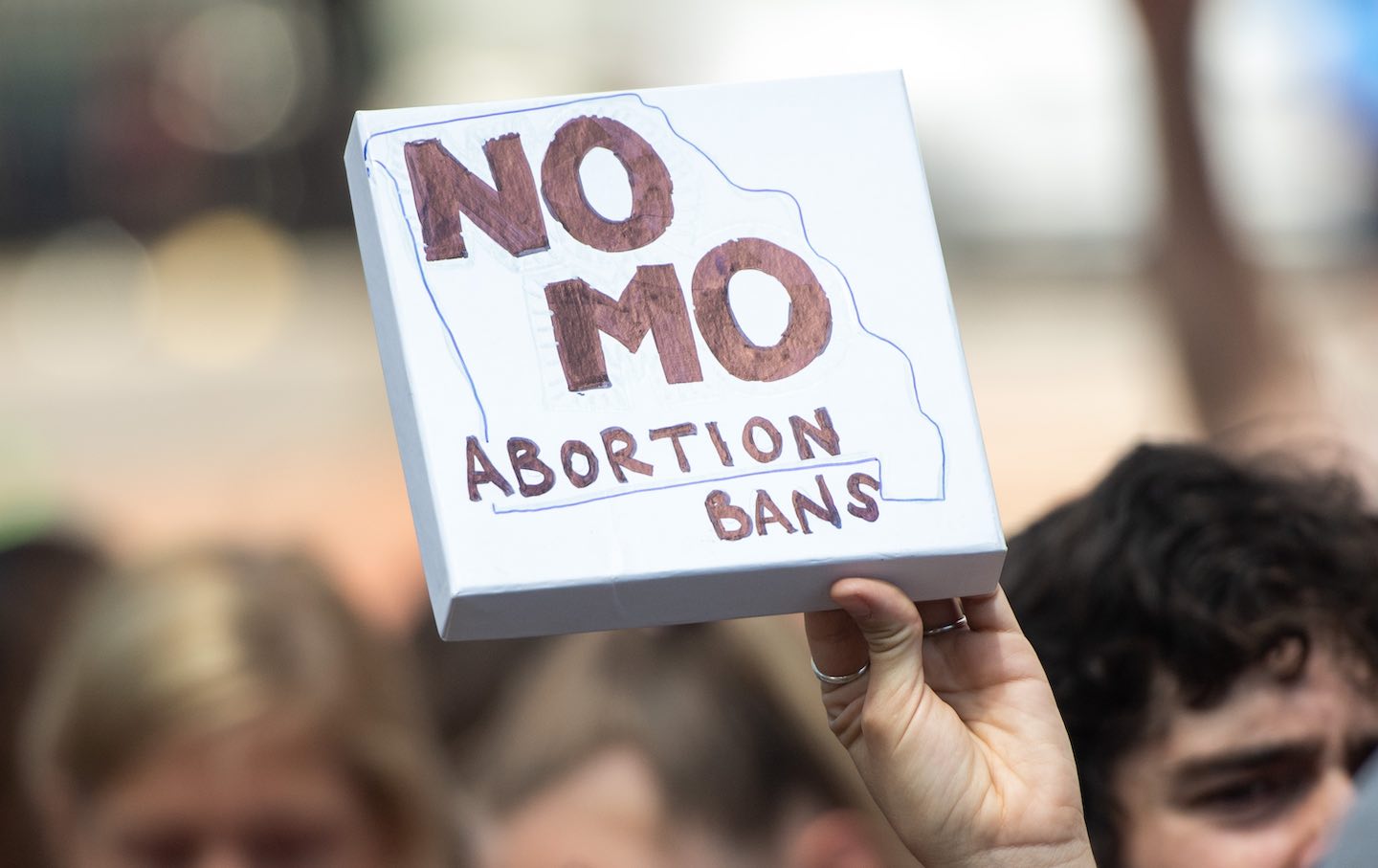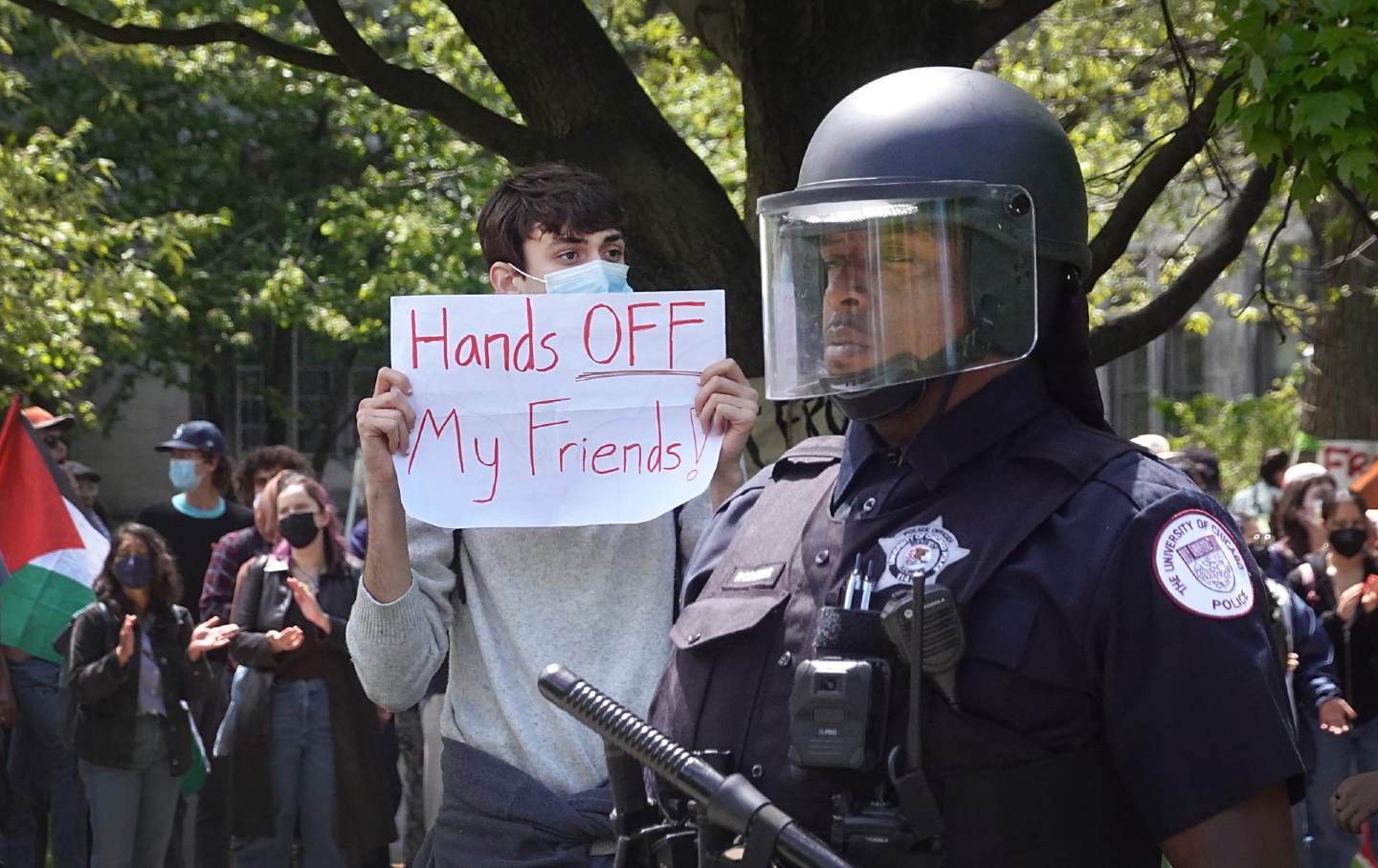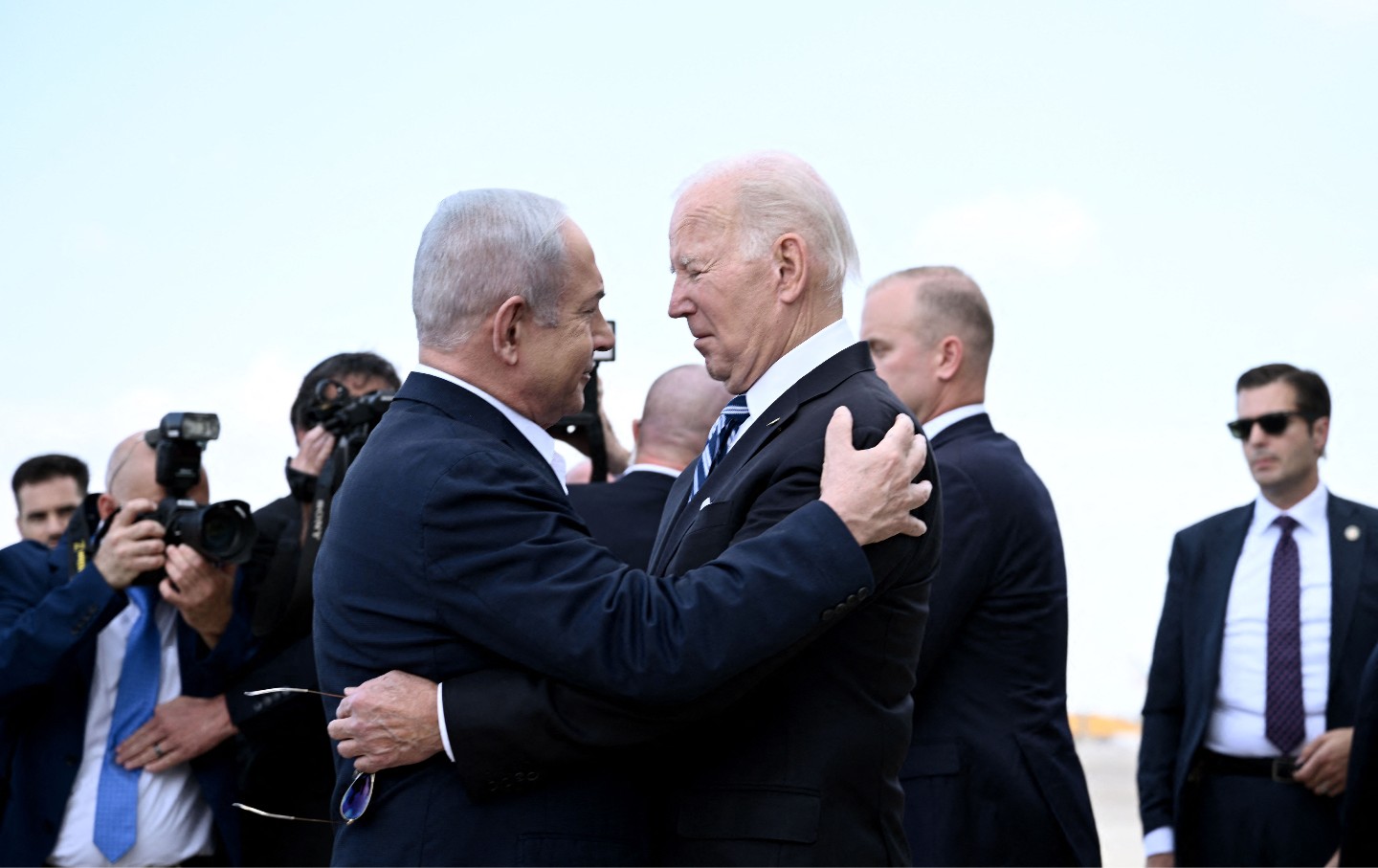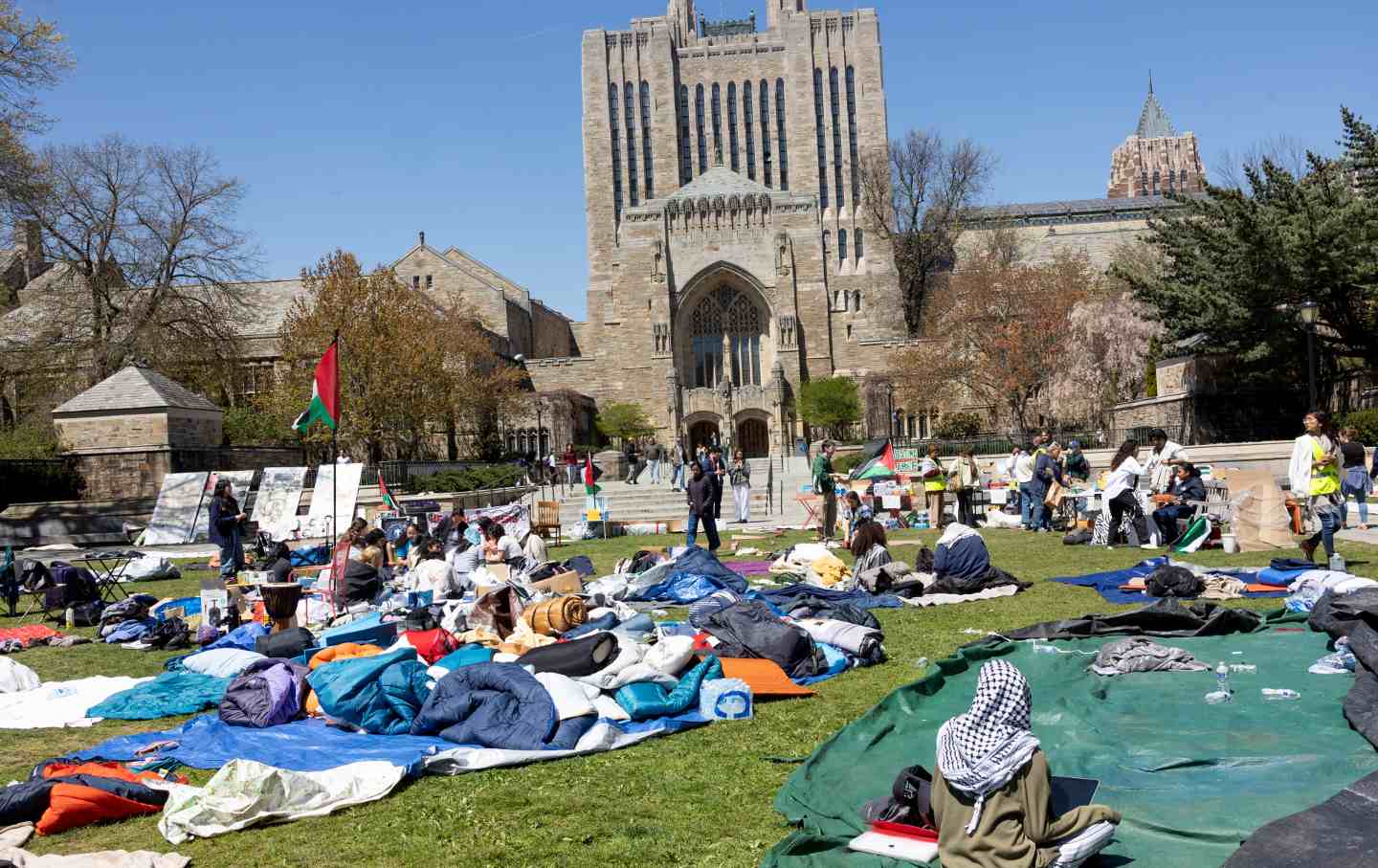
The invasion of Rafah is not a sign of strength. It’s a sign of desperation from a flailing government.
Palestinians collect belongings from the rubble of destroyed houses after Israeli attacks on Rafah on May 9, 2024.
(Hani Alshaer / Anadolu via Getty Images)
On April 6, Hamas fighters launched a complex ambush against Israeli soldiers patrolling the Zanna neighborhood east of the central Gaza city of Khan Younis. The area, lying around two kilometers from the boundary fence that separates Gaza from Israel, had been under the control of the Israeli military since it was invaded five months earlier. Hamas claimed that nine soldiers were killed in the attack; Israel admitted to four dead and several injured.
Hamas later released an eight-minute video documenting its fighters planning the attack, setting up the ambush, and carrying out the elaborate, multistage operation. A day after the attack, the Israeli army withdrew from Khan Younis, having destroyed much of the city but not, it seems, Hamas’s ability to fight there.
On May 6, Hamas announced that it had accepted a cease-fire proposal drafted by Egyptian and Qatari mediators with the involvement of President Joe Biden’s personal envoy to the cease-fire talks, CIA Director William Burns. That night, Israel responded by beginning its long-threatened invasion of Rafah. As of today, at least 100,000 people have already fled the city. (The United States has indicated that it does not consider an invasion to have officially begun, and Biden told CNN on Wednesday that he is prepared to pause weapons transfers to Israel if the situation escalates.)
The Zanna operation, Hamas’s approval of the cease-fire proposal, and Israel’s attack on Rafah together explain the dynamics prolonging this war—one that, no matter what Israel says, it has comprehensively failed to win.
There is a myth, propagated by Israeli Prime Minister Benjamin Netanyahu and his allies, that a “total victory” against Hamas is only one invasion of Rafah away. In this story, the bombardment of the Gaza Strip and the destruction of its civilian life is conflated with the destruction of Hamas itself. There are doubtless many people who do not see a contradiction there. For them, Rafah, whose pre-war population of 250,000 has quintupled with refugees from other parts of Gaza, needs to suffer the same fate as Gaza’s other cities.
But the Zanna operation, among others, tells a different story: Despite Israel’s causing so much devastation that the UN estimates it may take decades to rebuild Gaza, Hamas and its allied groups have continued to function across the ruined Strip.
Following its withdrawal from Khan Younis, the Israeli army carried out an incursion into the Nuseirat refugee camp and neighboring Mughraqa. But resistance on the ground was stiff. After several Israeli soldiers were killed in an ambush in Mughraqa that reportedly utilized an unexploded US-made Israeli missile, the Israelis withdrew. Meanwhile, the east-west corridor that the Israeli army has set up to bisect the entire Gaza Strip has been under frequent mortar, rocket, and sniper attacks. And on Sunday, rocket fire from southern Gaza killed four Israeli soldiers at a staging area in the Kerem Shalom military base. Palestinians are not just continuing to fight in Gaza; there is clear coordination, command, and control—and, with many of the attacks filmed, a coherent media strategy.
Current Issue

In retrospect, it seems obvious that, despite Israel’s bluster, Hamas has been confident for months in its ability to survive. One key piece of evidence for this is its handling of the cease-fire negotiations.
The group has insisted on several conditions for a potential cease-fire: that Gaza’s displaced population be allowed to return unfettered to the north, that Israeli forces withdraw from Gaza, that any cease-fire lead to a formal end to the war, and that the Israelis in Hamas custody be released only in exchange for Palestinians in Israeli prisons. Back in February, for instance, Netanyahu called the group’s cease-fire conditions “delusional.” In the following weeks, the Israeli army raided Shifa and Nasser hospitals. The army’s chief of staff, Herzi Halevi, told soldiers the raids were meant to put pressure on Hamas during negotiations. By the time Israel pulled out, Gaza’s two largest hospitals had been reduced to burned-out husks, their courtyards the site of mass graves. But the pressure did not appear to work—Hamas did not budge from its demands.
In fact, if anyone appears to be rattled, it’s Israel. With negotiations underway in Cairo last week, and reports indicating that an agreement might be in the works, Netanyahu announced that he would order an attack on Rafah “with or without a deal” to free the Israelis held by Hamas. A cynic could be forgiven for thinking the Israeli leader prefers to prolong the war over securing the freedom of his citizens. Other Israeli officials kept pounding the drum for a Rafah invasion. Shimon Boker, a deputy mayor of Beersheba who is tied to Netanyahu’s party, went on Israeli TV to say, “I think we should have gone into Rafah yesterday. There are no uninvolved [innocent] civilians there. You have to go in and kill and kill and kill.” There are 600,000 children in Rafah.
Perhaps Netanyahu was banking that his threat would torpedo the talks. Indeed, by the weekend, it seemed like the potential accord had fallen through. Hamas’s negotiators flew back to Qatar, but so did Burns, and indirect talks continued there. Hamas’s announcement on Monday that it had accepted the cease-fire proposal seemed to take the Israelis by surprise. Within hours, they were messaging that the deal wasn’t what they had been led to believe it would be—an interesting approach, considering the central role of the head of the CIA in drafting it.
On the other hand, the Biden administration seemed warm to the development, before reverting to form. From the officials who first brought us “UN Security Council resolutions are not binding” came “accepting the cease-fire proposal is not accepting the cease-fire proposal.”
But while Burns, the Israelis, Egyptians, Qataris, and Hamas resumed talks in Cairo—though they have apparently now broken up—Israeli tanks rumbled into Rafah under the cover of intense air strikes and artillery shelling that have killed dozens already, including many children. For months, world governments, the UN, virtually every humanitarian organization, and even the Biden administration have warned that a full-scale assault on Rafah would result in a bloodbath.
With that in mind, it could be that the Israeli leadership truly believes that such a massacre could be what it takes to force Hamas to back off its demands. Or maybe it’s a last roll of the dice for a government that has little to show for this war other than tens of thousands of Palestinian corpses and millions of tons of rubble. This is a leadership that has failed catastrophically; its strategy of “managing the conflict” has failed, its attempt to integrate with the broader Middle East by bypassing the Palestinians has failed, and the way it has prosecuted this war has led to global revulsion even among allies. It is on trial for genocide at the International Court of Justice, the International Criminal Court may issue warrants against it, and it is unlikely to survive whatever political transition occurs in Israel after the war.
This might be the last chance to bring this horror—a mass slaughter of children on a historically unprecedented scale—to an end. The US president has been the one person in the world with the leverage to force Israel to stop. If he decides, as he has many times before, to defer to the murderous whims of Israel’s fanatical, right-wing government, we may find ourselves witnessing new levels of savagery.
Popular
“swipe left below to view more authors”Swipe →
Thank you for reading The Nation!
We hope you enjoyed the story you just read, just one of the many incisive, deeply-reported articles we publish daily. Now more than ever, we need fearless journalism that shifts the needle on important issues, uncovers malfeasance and corruption, and uplifts voices and perspectives that often go unheard in mainstream media.
Throughout this critical election year and a time of media austerity and renewed campus activism and rising labor organizing, independent journalism that gets to the heart of the matter is more critical than ever before. Donate right now and help us hold the powerful accountable, shine a light on issues that would otherwise be swept under the rug, and build a more just and equitable future.
For nearly 160 years, The Nation has stood for truth, justice, and moral clarity. As a reader-supported publication, we are not beholden to the whims of advertisers or a corporate owner. But it does take financial resources to report on stories that may take weeks or months to properly investigate, thoroughly edit and fact-check articles, and get our stories into the hands of readers.
Donate today and stand with us for a better future. Thank you for being a supporter of independent journalism.
Thank you for your generosity.
More from The Nation

The party has strong candidates up and down the ballot, and a referendum could bring out enough young voters to turn this red state purple.
John Nichols

While some of the worst behavior has come from local and state police, university police have shown themselves to be just as capable of brutality.
Alex S. Vitale

A new lawsuit filed against the state of Nevada by the Trump team and its friends in the RNC says a lot about how they plan to suppress the vote in November.
Elie Mystal

In two decades, the ICC has never indicted a Western official. But a warrant may be coming for Benjamin Netanyahu.
Reed Brody

The potential next president and his allies are looking at the campus-led crackdown on free speech as a perfect dress rehearsal.
Gregg Gonsalves